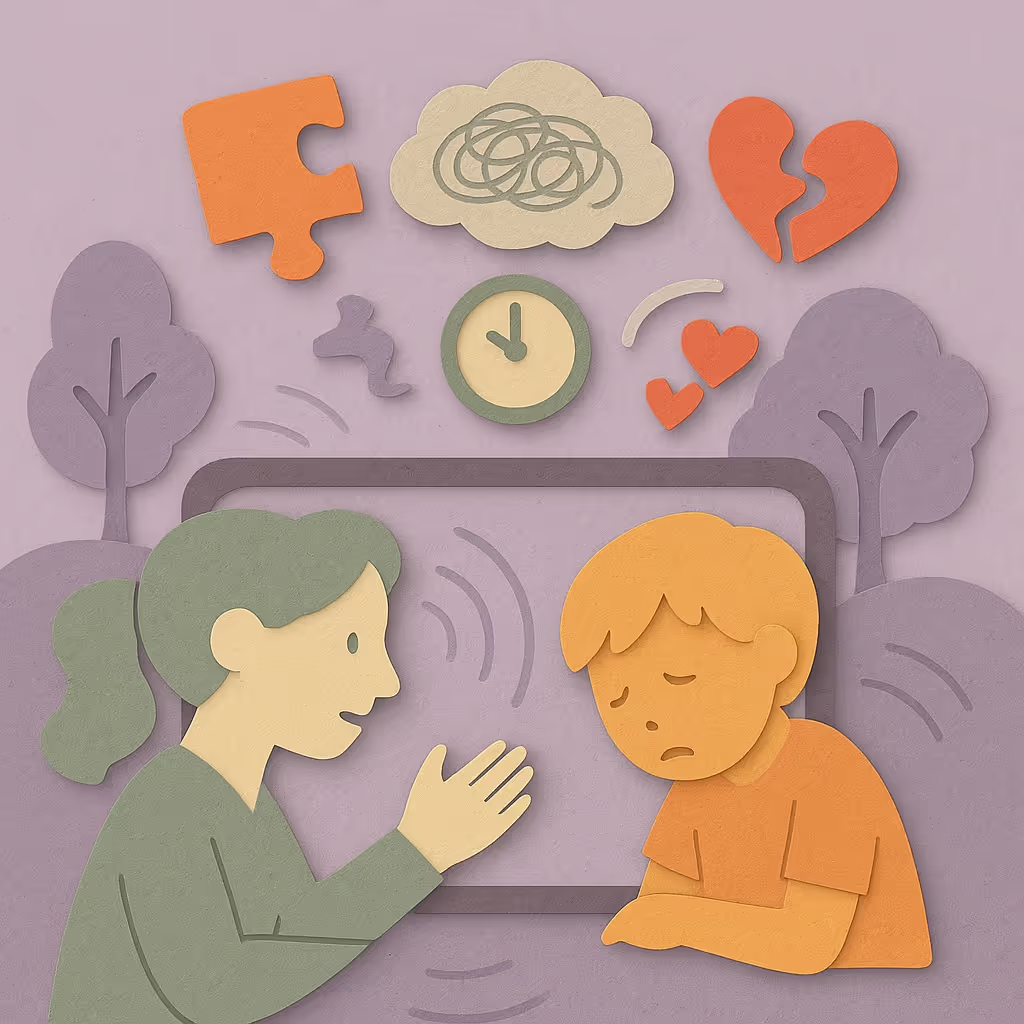During play, kids often show how they feel without using words. One moment a client is engaged and playful, and the next they might turn quiet, restless, or even push away from the activity.In virtual sessions, it can be even harder to tell what’s happening. Maybe their screen freezes, or there’s a delay in how they respond.
When this happens, it might mean the child is feeling dysregulated, that’s when their emotions get too big to manage easily. Sometimes it’s because they’re tired, overwhelmed, or something in the play brought up a big feeling. And being on a screen can make things tougher. There might be noise in the background, too much screen time, or slow internet making things more stressful.
When a session gets off track, therapists don’t need to rush to fix it. Instead, many pause and notice. What just happened in the play? Was there a shift in tone or energy? A long silence or a moment of frustration?
Therapists might respond with calm words or simple choices. Others may switch to an activity that invites co-regulation, like breathing together or doing a shared drawing. These small pivots can help bring things back into balance without pushing too hard.
Over time, patterns may begin to surface. Keeping notes or gently tracking what happens before a disruption can support future planning. Sometimes caregivers are noticing the same patterns at home, which opens space for meaningful conversations and support..
After a tough moment, some therapists make time for repair. This might sound like “Last time was tricky. I am glad we are here today.” Even small check-ins like this can help a client feel safe again. It reminds them that the relationship stays strong even when the session feels bumpy.
Therapists are great at adjusting. They slow down, notice what’s heappening, and follow the client’s lead. These responses might feel small, but they show deep care.. Whether through a quiet pause, a soft reframe, or a calming activity, these shifts help clients feel seen and safe.
Dysregulation is not the opposite of progress. In many ways, it is part of the process. These moments show how a client handles stress and how they’re learning to move through it with help.
There is no single way to respond. But by noticing them and staying present, therapists continue building trust that stretches beyond the screen. Taking time to reflect on these moments also shows deep care. It means holding space not just for play but for all the feelings that come with it. Your patience, curiosity, and heart make a difference even when progress feels quiet.

Lorem ipsum dolor sit amet, consectetur adipiscing elit, sed do eiusmod tempor incididunt ut labore et dolore magna aliqua. Ut enim ad minim veniam, quis nostrud exercitation ullamco laboris nisi ut aliquip ex ea commodo consequat. Duis aute irure dolor in reprehenderit in voluptate velit esse cillum dolore eu fugiat nulla pariatur.
Block quote
Ordered list
Unordered list
Bold text
Emphasis
Superscript
Subscript
.avif)